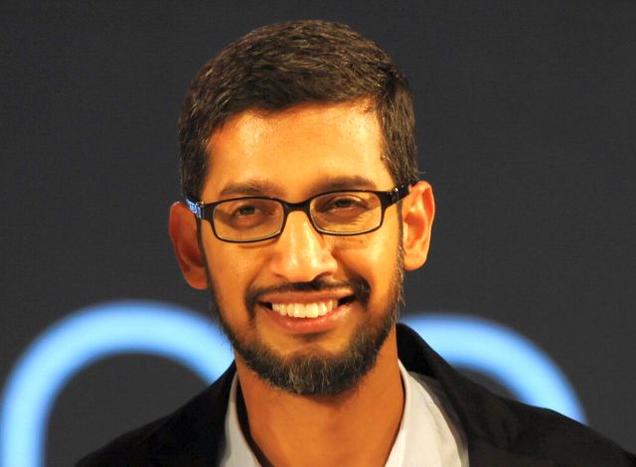
“Super excited about his progress and dedication to the company,” says Google co-founder Larry Page.
Google’s announcement on Monday that it would be subsumed within a new parent company called Alphabet had a bonus for people of Indian-origin world over: the company’s head of Products and Engineering, Chennai-born Pichai Sundararajan, was anointed the CEO of the new, “slimmed down” Google.
Underscoring his confidence in the man known as Sundar Pichai (43), Google boss Larry Page said of the restructuring in the company he co-founded with Sergey Brin, “A key part of this is Sundar Pichai.”
Mr. Pichai, who is a graduate of IIT Kharagpur and Stanford University, had “really stepped up since October of last year, when he took on product and engineering responsibility for our Internet businesses,” Mr. Page said in a blog post, adding that he and Mr. Brin were “super excited about his progress and dedication to the company.”
They may well have reason to feel fortunate that Mr. Pichai is the man to head their $66-billion revenue, $16-billion profit, company– by most accounts he combines a deep passion for engineering excellence with a rare managerial quality of attracting the best talent into the teams he works with.
Mr. Pichai started at Google in 2004, where he was known as a “low-key manager” who worked on the Google toolbar and then led the launch of the market-beating Chrome browser in 2008.
Following this his rise through the ranks of Google took on an increasingly meteoric tenor, and soon he became Vice President, then Senior Vice President, and ultimately was charged with supervising all Google apps including Gmail and Google Drive and finally given control of Android itself.
His promotion to Product Chief in October 2014 literally made him Mr. Page’s second-in-command with oversight of day-to-day operations for all of Google’s major products including maps, search, and advertising.
Some of Mr. Pichai’s colleagues describe him in the media as a skilled diplomat, including Caesar Sengupta, a Google Vice President who has worked with Mr. Pichai for eight years, and said to Bloomberg News, “I would challenge you to find anyone at Google who doesn’t like Sundar or who thinks Sundar is a jerk.”
Nowhere was Mr. Pichai’s easy blending of techno-diplomatic competence evident than in early 2014, when the fracas between Samsung and Google was reaching fever pitch, at the time over Samsung’s Magazine UX interface for its tablets, which Google felt may have been deliberately underselling Google services such as its Play apps store.
According to reports “Defusing the situation fell to Sundar Pichai, the tactful, tactical new chief of Google’s Android division. Pichai set up a series of meetings with J.K. Shin, CEO of Samsung Mobile Communications, [where] they held ‘frank conversations’ about the companies’ intertwined fates [and a] fragile peace was forged.”
Since then, Samsung has apparently agreed to scale back Magazine UX, and the two corporations have announced a broad patent cross-licensing arrangement to implement which they “now work together more closely on user experience than we ever have before,” according to Mr. Pichai.
Another apparent talent of Google’s new CEO – his thinking seems to be ahead of the curve. Although Mr. Pichai trained in metallurgy and materials science at IIT Kharagpur, and Stanford and did an MBA at Wharton, he was already deeply immersed in the world of electronics.
According to one of his college professors Mr. Pichai “was doing work in the field of electronics at a time when no separate course on electronics existed in our curriculum.”
The Google founders no doubt recognised that Mr. Pichai was a man on an evangelical-type mission for pushing the boundaries of technology.
Mr. Pichai most eloquently outlined this mission when he said, “For me, it matters that we drive technology as an equalising force, as an enabler for everyone around the world. Which is why I do want Google to see, push, and invest more in making sure computing is more accessible, connectivity is more accessible.”
source: http://www.thehindu.com / The Hindu / Home> Sci-Tech> Technology / by Narayan Lakshman / Washington – August 11th, 2015